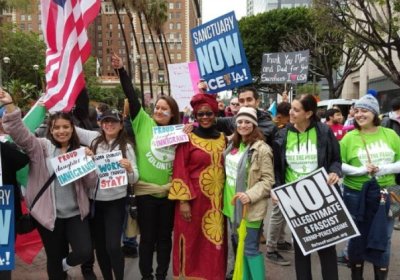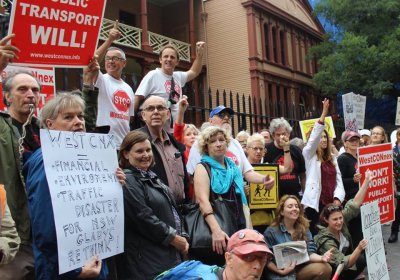The first few weeks of the Donald Trump administration have been extraordinary, and quite frightening — not just because of the incompetence of a president who appears to be little more than a self-obsessed idiot, but also by the actions of the dangerous ideologues at the helm of the world’s biggest economy and military power.
Economy
A push is underway to set up a safe injecting room in the Melbourne suburb of Richmond to reduce the number of fatal overdoses of drug users.
With the state coroner and other medical professionals supporting the push, Sex Party MP Fiona Patten has introduced a private member’s bill to set up a trial safe injecting room, which was debated in state parliament on February 22.
Gas giant Santos’s Environmental Impact Statement (EIS) for its proposal to create a gasfield in the Pilliga Forest was made public on February 21, two weeks after it was lodged with the government for assessment. It will be on public exhibition until just April 24.
The EIS shows that Santos still intends to drill coal seam gas (CSG) production wells despite widespread protests over the trouble-plagued Narrabri Gas Project.
Standing Rock water protectors vow to fight on
In the end, the expected close result never happened. At the second congress (“citizens’ assembly”) of Spain’s radical anti-austerity party Podemos, the proposals and candidate list of outgoing general secretary Pablo Iglesias easily defeated those of his rival, outgoing political secretary Inigo Errejon.
In a December Podemos membership vote over the rules that were to govern the congress, Iglesias’s position had only won marginally (41.57% as against 39.12% for Errejon’s).
The Trump administration is pressing on with its reactionary agenda amid ongoing mass protests.
Wall Street and businesses, big and small, greeted Trump’s election with elation in anticipation of his campaign promises to rapidly eliminate regulations they regard as onerous. As Trump seeks to fulfil these promises, the capitalists are moving to take advantage of the chance to rake in greater profits.
Members of the Argentine Metal Workers’ Union (UOM) marched to the Ministry of Labour in Buenos Aires on February 14 in protest of thousands of jobs cut from electronics manufacturing companies.
The cuts came after a government decision to eliminate a 35% tax on computer imports.
Protesters gathered in front of the National Congress of Argentina before marching to the offices of the Ministry of Labour, Employment and Social Security, with many banging drums and waving flags.
Other unions also took part in the demonstration.
Thousands in the streets across US for Weekend of Action
The resistance is taking many forms in the United States, Common Dreams said, with some constituents showing up to lawmakers' town hall events to demand accountability and others taking to the streets to protest the Trump administration and its draconian policies.
Despite global financial crises that have rocked the small South American nation in recent years, Ecuador has managed to achieve landmark social and economic progress in the past decade under the left-wing government of President Rafael Correa, according to a new report from the Centre for Economic and Policy Research.
“Trump’s America,” wrote a leading African American journalist, Charles Blow in the New York Times, January 30, “is not America: not today’s or tomorrow’s, but yesterday’s.
“Trump’s America is brutal, perverse, regressive, insular and afraid. There is no hope in it; there is no light in it. It is a vast expanse of darkness and desolation.”
There is a lot of disgust toward Trump and his white nationalist strategist Steve Bannon, former executive chairman of Breitbart News, a leading promoter of conspiracy theories and white supremacists.
Right-wing politicians have blown hard on the anti-renewables dog-whistle since February 8, when extreme temperatures in South Australia were followed by rolling electricity blackouts.
Late that afternoon, power demand in the state spiked to near-record levels. From about 6pm, 100 megawatts — roughly 3% of the state’s total demand — was shed for about half an hour.
“Stop WestConnex! No WestConnex!” rang out across Macquarie Street from a snap action of up to 100 people outside NSW Parliament on February 14. A number of anti-WestConnex groups gathered at short notice after the Australian National Audit Office released its damning report into WestConnex.
- Previous page
- Page 84
- Next page











